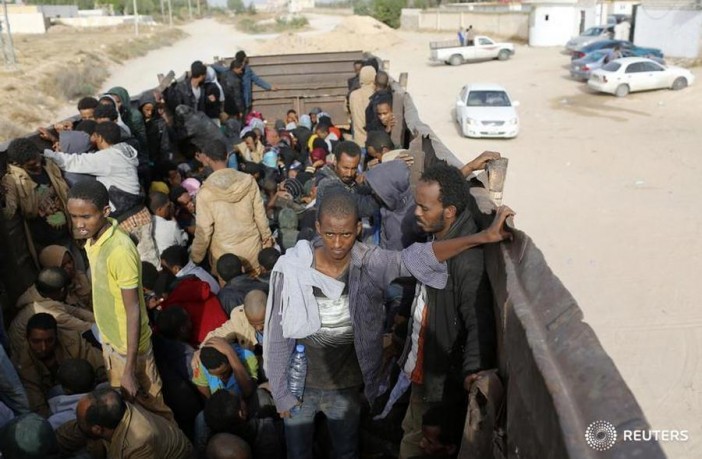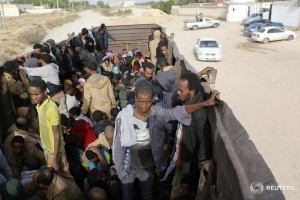Reuters
by Aziz El Yaakoubi
Moroccan government said on Thursday it will maintain its “clearing operations” against smuggling and crime at a Western Sahara border area despite warnings from the Polisario Front that it was a violation of their 1991 ceasefire deal.
Polisario, which declared an independent republic in the disputed desert land in the 1970s and fought a guerrilla war with Morocco, accuses Rabat of breaking the terms of the ceasefire by building a road in the U.N. buffer zone. Morocco claims sovereignty of the region.
U.N. peace-keeping observers (Minurso) deployed this week to monitor a standoff between Moroccan forces and Western Sahara Polisario troops in the buffer zone in the Guerguerat region, near the Mauritanian border.
The buffer zone is in an area between the Moroccan-built berm – a mostly sand wall that stretches through Western Sahara, separating government-controlled areas from Polisario territory – and the Mauritanian and Algerian borders.
The government said the interior ministry operation in Guerguerat would continue according to its schedule and in coordination with the Minurso, according to a statement issued after the weekly cabinet meeting.
“The operation has been conducted in respect of the ceasefire agreement,” it said.
It did not give further details and did not say if it will keep laying a road.
U.N. observers have been mediating to ease tensions between Moroccan Royal Gendarmerie and a unit of Polisario fighters both in a narrow patch of no-man’s land in the far south.
Morocco’s government says the road will make it easier to fight smuggling, human and drug-traficking and terrorism, while the Polisario says any Moroccan move beyond the sand wall is a violation of the ceasefire.
The dispute over Western Sahara, which is rich in phosphate, has been in diplomatic deadlock for more than two decades since the U.N.-sponsored ceasefire came into force on the understanding a referendum would be held on self-determination.
But the two sides never agreed on the terms of the referendum. Morocco’s king has put forward an autonomy plan instead and invested heavily in the region in an attempt to calm independence claims.
(Reporting by Aziz El Yaakoubi; Editing by Patrick Markey and Richard Balmforth)








